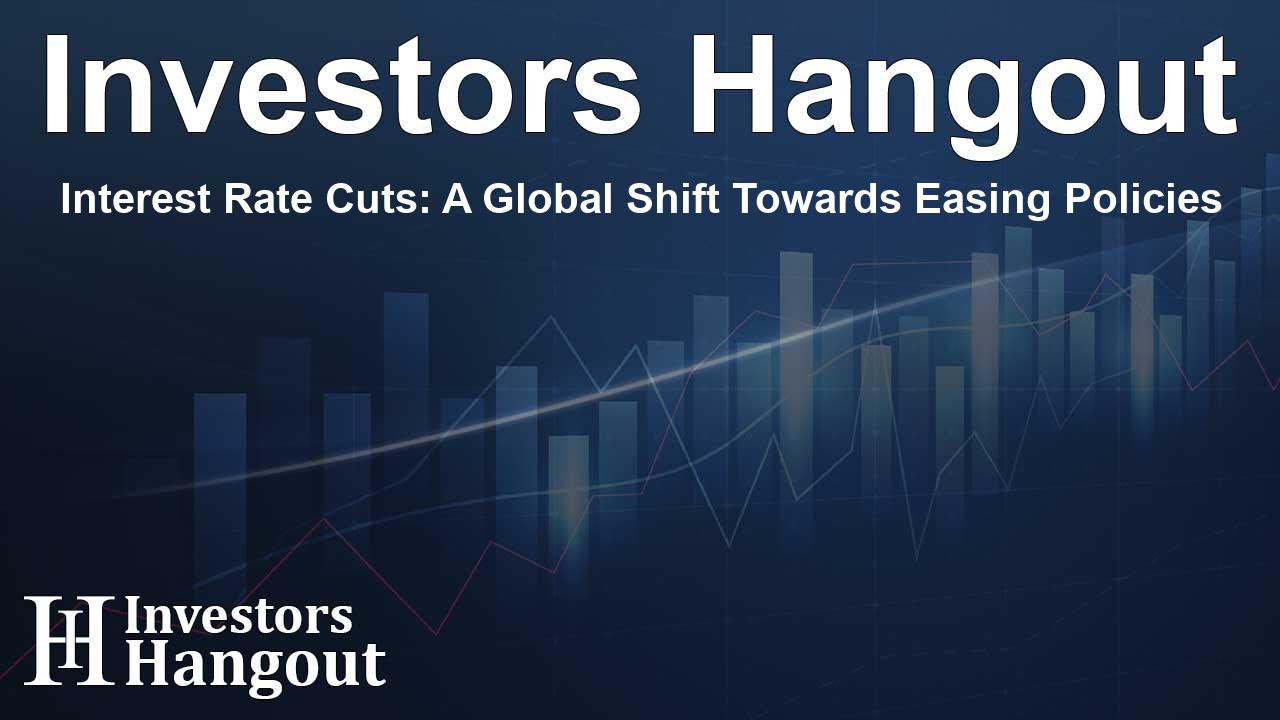Interest Rate Cuts: A Global Shift Towards Easing Policies

Understanding the Shift in Global Monetary Policy
The European Central Bank (ECB) is expected to announce a significant interest rate cut soon, a move many view as part of a broader trend toward synchronized monetary easing across the globe. This shift comes in response to the changing economic landscape as central banks adjust their strategies to stimulate growth while inflation risks appear to be stabilizing.
Implications for Future Rate Cuts
Market analysts predict that the ECB will implement a second reduction in borrowing costs, following a similar move made earlier. This anticipated change is not isolated, as the timing aligns with upcoming decisions by leading central banks in other major economies, emphasizing a coordinated approach towards easing monetary policies.
The Role of Inflation Trends
Recent economic indicators, particularly a slowdown in wage growth in the euro zone, have empowered policymakers to contemplate these cuts. Meanwhile, upcoming consumer-price data in the US is likely to offer insights into how inflation pressures are evolving, which could influence the Federal Reserve's next steps.
Central Banks Adjusting Strategies
As central banks globally adapt their monetary policies, the upcoming ECB meeting is crucial. ECB President Christine Lagarde will likely address the prospects for economic growth alongside the recent data showing weaker-than-expected second-quarter expansion. These discussions will shape expectations for the near future regarding interest rates.
Focus on Key Economic Indicators
Investors are particularly attentive to upcoming measurements of inflation and employment data. Reports from the US, including the consumer price index (CPI) and producer price index (PPI), will provide further context about the trajectory of economic recovery and inflation stabilization, guiding policymakers in their decisions.
Global Economic Dynamics
This month’s meetings among various central banks come at a pivotal moment, as they're poised to impact not just local economies but also extend their influence to global financial markets. Investors remain keen to discern whether these interest rate reductions will trigger a more profound easing cycle or merely serve as a short-term response to prevailing economic conditions.
Challenges Ahead
Despite the optimistic outlook heralded by rate cuts, challenges linger. Economic conditions in parts of Asia, including fragile consumer demand in China and rising inflation in India, may hinder growth prospects. Such complexities complicate the global economic landscape and underline the necessity for cautious policymaking.
Anticipating Economic Reactions
As economies across the globe recalibrate their strategies, the consequences of these monetary policy shifts will be monitored closely. Stakeholders will be particularly interested in whether rate cuts will effectively stimulate spending and investment while instilling confidence among consumers navigating a period of heightened caution.
Frequently Asked Questions
What is the expected impact of interest rate cuts by central banks?
Interest rate cuts generally aim to stimulate borrowing and spending, encouraging economic growth and easing financial pressures on consumers and businesses.
How do changes in monetary policy affect investments?
Changes in monetary policy can influence market liquidity, investment returns, and the overall confidence of investors, leading to fluctuations in asset prices.
What indicators do central banks consider when deciding on rate cuts?
Central banks evaluate inflation rates, employment data, economic growth metrics, and consumer confidence when deciding whether to adjust interest rates.
Are other economies also considering rate cuts?
Yes, several major economies are reviewing their monetary policies, indicating a trend toward potential rate cuts as they manage inflation and support economic recovery.
How often do central banks reassess their monetary policies?
Central banks typically reassess their monetary policies during designated meetings throughout the year, often aligning these with key economic data releases.
About Investors Hangout
Investors Hangout is a leading online stock forum for financial discussion and learning, offering a wide range of free tools and resources. It draws in traders of all levels, who exchange market knowledge, investigate trading tactics, and keep an eye on industry developments in real time. Featuring financial articles, stock message boards, quotes, charts, company profiles, and live news updates. Through cooperative learning and a wealth of informational resources, it helps users from novices creating their first portfolios to experts honing their techniques. Join Investors Hangout today: https://investorshangout.com/
Disclaimer: The content of this article is solely for general informational purposes only; it does not represent legal, financial, or investment advice. Investors Hangout does not offer financial advice; the author is not a licensed financial advisor. Consult a qualified advisor before making any financial or investment decisions based on this article. The author's interpretation of publicly available data shapes the opinions presented here; as a result, they should not be taken as advice to purchase, sell, or hold any securities mentioned or any other investments. The author does not guarantee the accuracy, completeness, or timeliness of any material, providing it "as is." Information and market conditions may change; past performance is not indicative of future outcomes. If any of the material offered here is inaccurate, please contact us for corrections.